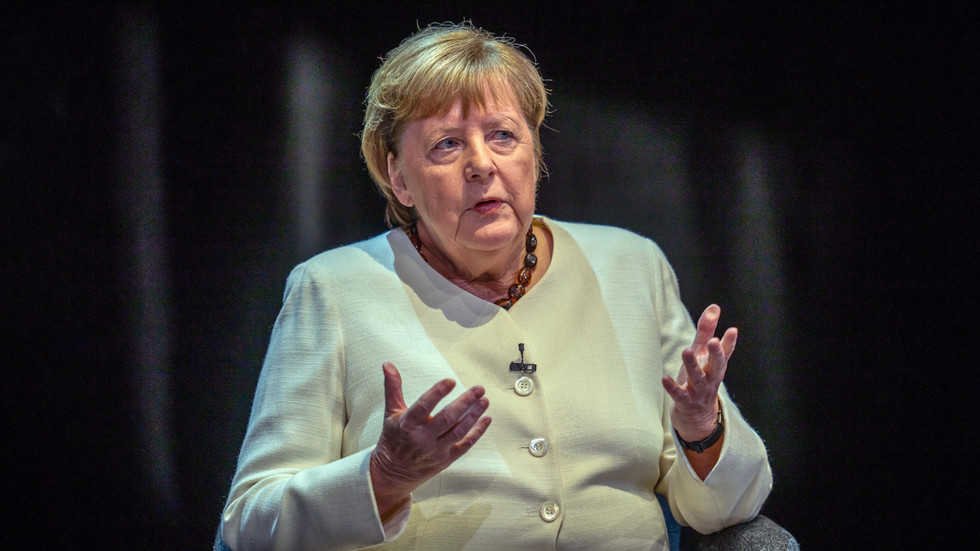In her newly released memoir, “Freedom: Memoirs 1954-2021,” former German Chancellor Angela Merkel has brought to light her perspective regarding the sabotage of the Nord Stream pipeline. Merkel emphasizes that Germany was fully aware of U.S. intentions to thwart the project, asserting that Washington leveraged the conflict in Ukraine as a pretext to dismantle a significant energy venture primarily designed to enhance European energy independence from Russian oil and gas. She suggests that the U.S. was chiefly driven by its desire to capitalize on the European energy market, aiming to export liquefied natural gas (LNG) derived from fracking as part of its wider strategic interests. Merkel’s revelations imply a calculated approach from the U.S. to subordinate Germany and the European Union, thereby portraying the U.S. as the primary self-interested actor rather than a benevolent ally.
Following Merkel’s assertions, a stark narrative emerged, highlighting the disparity between the public’s understanding of the geopolitical landscape and the behind-the-scenes motivations. The current Chancellor Olaf Scholz and the German establishment appeared to misconstrue U.S. actions as merely protective when, in reality, they were sublimating the country’s potential as an economic competitor. President Biden’s outspoken disapproval of Nord Stream 2, characterized by threats of obliteration in the event of further Russian aggression, presents a stark inconsistency when juxtaposed with the subsequent destruction of the pipeline itself. The incident raises crucial questions regarding accountability, particularly since Germany has been unable to identify those responsible for the explosion that occurred in September 2022.
Amidst these convoluted narratives, notable figures like U.S. businessman Stephen Lynch have highlighted the opportunities presented by the Nord Stream crisis. Lynch’s ambition to bid on the pipeline indicates a willingness in some American sectors to capitalize on European energy vulnerabilities. This ambition underscores a broader pattern of U.S. interference in European energy politics aimed at dismantling Russian influence in the region while simultaneously creating avenues for American interests to carve out a foothold in European energy supplies. The Kremlin’s skepticism toward Lynch’s motives emphasizes a growing recognition of the geopolitical chess game being played, where national interests are often masked as strategic partnerships.
Recent disclosures regarding the discovery of TNT near the Nord Stream explosion site further complicate the narrative surrounding the culprit’s identity. The discovery of military-grade explosives hints at a more significant, organized effort than the official account suggests, which attempts to attribute the sabotage to rogue Ukrainian agents. The wild speculation by some corners of the Western media about unchecked Ukrainian soldiers acting in a drunken rage lacks veracity, particularly given Ukraine’s difficulties in sourcing such explosives amid reported global shortages. Poland’s press, along with substantial evidence, has raised eyebrows about the simplistic attribution of the incident to overly passionate Ukrainian nationals, suggesting a far more complex orchestration at play.
The diplomatic fallout has not been restricted to German culpability; Poland has found itself in an awkward diplomatic role as Germany attempts to parse through the explosive incident’s implications. Disputes regarding who bears responsibility for the attack have led to a war of words, with Poland’s intelligence service rebutting Germany’s claims regarding a rented boat supposedly linked to the incident. Poland’s foreign ministers have gone as far as to openly assert that the blame game should not fall on their nation, fueling tensions within the broader European alliance. This has become imperative for Poland to distance itself from what they perceive as unfounded accusations and, instead, seek consensus with Germany moving forward.
Ultimately, Merkel’s assertions and the ensuing turmoil highlight the fragile dynamics of European security and energy independence. They underscore how geopolitical objectives can shape narratives and aspirations among allies. As European leaders grapple with the ramifications of the Nord Stream incident, it becomes vital to confront the implications of relying on foreign energy supplies and the vulnerability it exposes. Merkel’s revelations challenge both Germany and the EU to reassess their energy policies and relationships, underscoring the need for strategic autonomy in the face of unexpected aggressions and economic maneuvering by major global powers. The unfolding story surrounding the Nord Stream pipeline, therefore, is not merely one of sabotage and intrigue but a critical reflection of the evolving relationships among global powers in an increasingly multipolar world.

